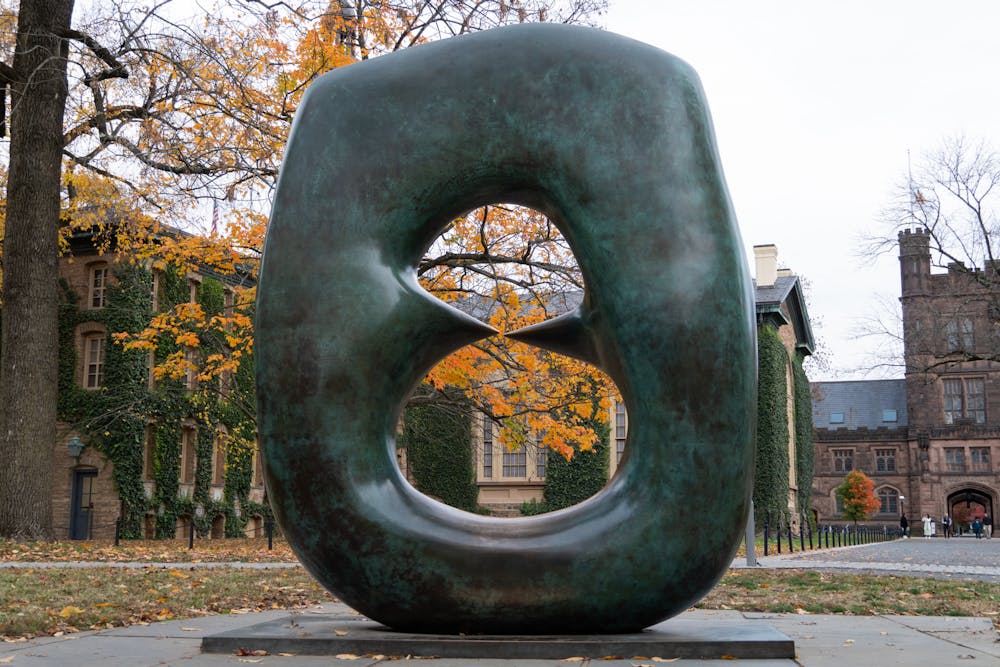Stagnant student engagement in the issues that have come before Undergraduate Student Government (USG) has been a consistent topic of debate. “The apathy many students have towards USG, an apathy USG has allowed to fester, has serious consequences,” wrote now-USG President Stephen Daniels ’24 in a guest contribution to The Daily Princetonian in 2021.
The USG Senate met on Sunday to weigh a new method of student engagement, reminiscent of the direct democracy that is constitutional in the Swiss Confederation.
Alex Sorgini ’26 delivered a presentation about TigerPoll, an app which aims to be a “platform where questions originating from USG or student groups can be answered by the student body,” according to an informational document shared with USG prior to the meeting. Developed by Sorgini and Caroline Rasmussen ’26, the app was created in response to a desire for student groups to be able to access “concrete data to make their cases or bolster their efforts for change,” as also stated in the document.
Sorgini serves as USG’s Chief Elections Manager, but gave the presentation outside of his formal role.
Student engagement with the app was identified as the largest potential issue by Sorgini, who expressed a hope that members of student organizations would be encouraged to use the platform when their own organizations submitted questions.
USG would be among student groups using the app to gauge student reactions to various issues. The extent to which USG might use such a platform to seek feedback on their weekly agenda was not addressed. The relevant questions from this week include the app itself, consideration of an amendment on processes to receive Projects Board funding, and a disbursement for money for events surrounding the Yale football game which passed via a unanimous vote.
Sorgini proposed that TigerPoll be integrated under the TigerApps umbrella currently managed by USG. Existing TigerApps include recal.io, Princeton Courses, TigerSnatch, and TigerPath. He also proposed that an ad-hoc committee be established for the development of the app. He told the Senate the app was about 70 to 80 percent done, and could potentially launch prior to the end of the semester.
Student engagement with the app was identified as the largest potential issue by Sorgini, who stated that he hoped, given that “student groups can submit questions,” there would be a trickle down effect wherein members of said groups would be encouraged to use the platform. Undergraduate Student Life Committee (USLC) Chair Caitlin McNally ’24 suggested that the app be paired with Tigers in Town programming, where students would only get access to vouchers after downloading the app, given that is how “[other] apps get downloaded.”

Sorgini also clarified the app would not identify students’ names to the greatest extent possible, and demographic data would be limited to identifying residential college and class year. Survey questions would also be approved by a committee prior to their upload on the app.
The Senate approved the ad hoc committee to consider the app in a unanimous vote.
The group then entered a contentious discussion around whether or not student groups should have to show up at meetings to receive large funding grants from Projects Boards. Currently, student groups are not required to send a representative to a Senate meeting prior to the approval of any Projects Board funding request. When groups do send representatives, Senate members are able to ask them questions about the events for which they are requesting funds.
In last week’s meeting, the Senate approved a funding request by South Asian Students Association (SASA) and HackPrinceton though neither of the groups sent a representative to answer questions, prompting Senator Braiden Aaronson ’25 to propose an amendment to the Projects Board charter that would require a student representative to attend a meeting in person or at least be available via text during the meeting.

Treasurer Walker Penfield ’25 argued against the amendment, saying that the “Projects Board approval meeting serves as an opportunity for student groups to propose their ideas for funding and receive approval from Projects Board.” He added, “during my time in the Senate, I have found the questioning of Projects Board [requesters by the Senate] to be unfruitful and redundant” given that Projects Board members have already discussed with members — and approved internally — every request that comes before the Senate. Only requests exceeding $1,000 are brought for a Senate vote.
The vote for the amendment ultimately did not pass, with Aaronson himself voting against it.
In favor: Senator Quin Freeny ’26, Senator Jack Ganley ’26, U-Councilor Judah Guggeinheim ’25, U-Councilor Daniel Shaw ’25, Proxy for U-Councilor Anuj Krishnan ’27, U-Councilor Roberto Lachner ’26
Against: Aaronson, Daniels, DEI Chair Uma Fox ’26, Senator Mariam Latif ’24, U-Councilor Chloe Long ’26, Senator and Mental Health Committee Chair Noah Luch ’24, Senator Luke Martin ’24, Penfield, U-Councilor Aishwarya Swamidurai ’26, Academics Chair Srista Tripathi ’25
Abstaining: Class Senator Ned Dockery ’25, Diya Kraybill ’25 (proxy for Social Chair Avi Attar ’25), U- Councilor Karen Villanueva ’27
A $5,000 increase in funding for the supplemental athletics working group was also approved unanimously, given the “demand for increased opportunities” with the suggestion of “Campus Club events before the official tailgate” for the upcoming Yale football game.
USG meetings are held on Sundays from 5–6 p.m. in Aaron Burr Hall 219 and are open for all students to attend.
Nandini Krishnan is a contributing News writer for the ‘Prince.’
Please send any corrections to corrections[at]dailyprincetonian.com.








